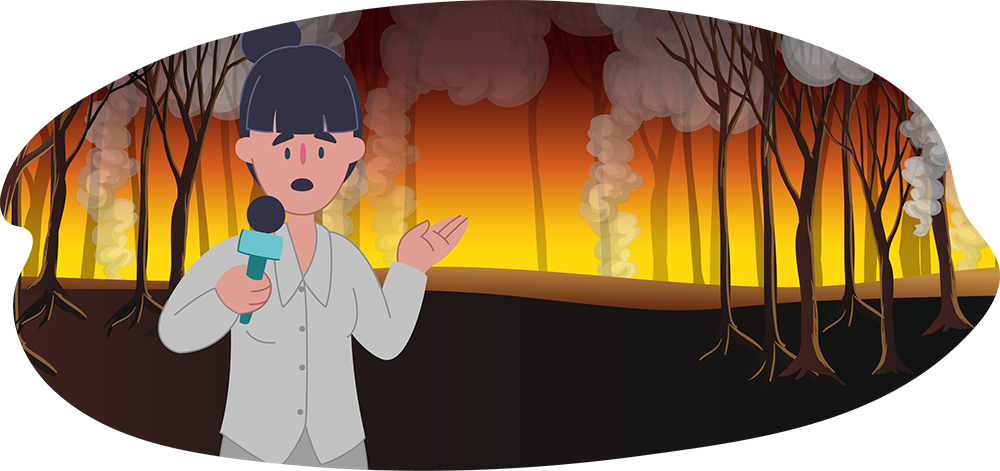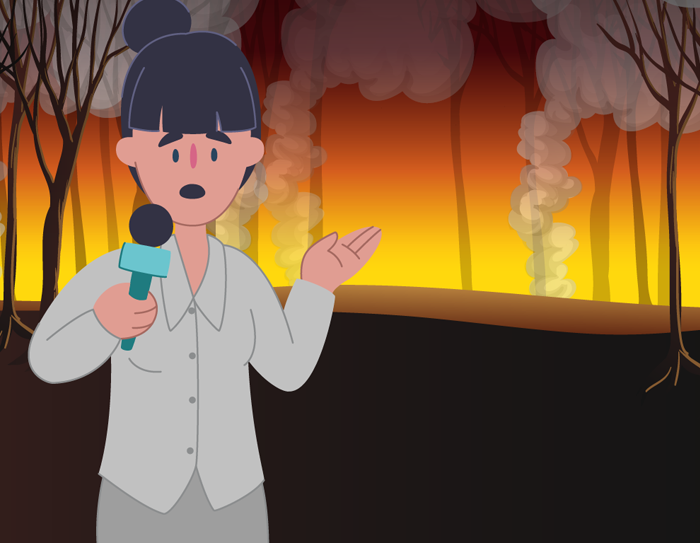Coping with natural disasters
When things feel out of control it’s important to have coping strategies ready

Prepare for the unexpected
Australia experiences various kinds of natural disasters – cyclones, floods, bushfires, drought – but remember there is always help available
- There are many services in Australia that can support the recovery effort – you are not alone
- Getting things back to normal can take time, but recovery is possible
Different people react differently, depending on their personality and situation
Generally though, most people will experience some or all of these impacts when they’re going through a natural disaster event:
Physical symptoms – stress-related headaches or stomach pains
Physical injuries – due to the natural event, needing food or water
Cognitive – repetitive thoughts, nightmares, or trouble concentrating
Emotional – feelings such as grief, fear, anxiety, sadness, guilt or depression
Social – changes to friendships, relationship troubles with family or siblings
Spiritual – questioning your beliefs, faith, or asking a higher power for help
Things you can do before a disaster
If you think that a natural disaster is headed your way, here are some things that can help:
- Talk to parents, guardians, or teachers about your worries and fears
- Stay informed by reading news online or listening to local radio
- Gather any personal belongings in case you need to leave quickly
- Keep pets in a secure room or fenced area so they are safe
- Stay close to parents, family, friends – avoid going places by yourself
- You might feel frightened or scared – that’s an ok response to a really stressful situation
- Take some deep, calming breaths
- Listen to music or watch your favourite show to take your mind off it
- Remind yourself that help is always available
- Remember that things can return to normal after natural events
Dealing with natural disasters
If you’re affected by a natural event, you’ll need some tools to help you cope. Try these strategies:
Give yourself time and space to experience all the emotions – don’t expect things to go back to normal straight away.
Rebuilding after a natural disaster
Recovering from a natural event can take time. It helps if you have support around you. Try out these tips on how to get back on track.
- Allow yourself to feel numb or ‘strange’ for a little while after – it’s your body’s natural response to a scary situation but things should soon return to normal
- Sometimes when everybody’s tired and scared conflict can happen in families – that’s common in high stress situations and will usually pass
- Get back to your old routine or start a new one – it can help reduce feelings of uncertainty, confusion, or anxiety
- Spend time with parents, family, friends – enjoy each other’s company and try to find the positives
- Do some things that help you feel calm, safe, and positive – e.g. listen to music, watch your favourite show, exercise, or deep breathing
- Talk about the experience and what it was like for you – these things affect people differently and for different reasons
- Take part in the recovery effort – ask a parent or guardian what you can do to help
Sometimes we all need extra help to get through a scary event
If things aren’t returning to normal, it could be a sign that you or someone you know needs some extra help, e.g. talking to a counsellor or other professional.
Here are some things to look out for:
Being withdrawn or avoiding others
Increased use of drugs and alcohol
Wanting to hurt yourself or others
Finding it hard to focus and concentrate
Constantly feeling scared, unsafe, or worried
Feeling very sad or hopeless most of the time
Not being able to talk about it or bottling things up
When two months have passed and you feel the same/worse
Where to get more support
Talking to someone is often the first step on the road to recovery. Here are some people you can talk to:
Check these out too:
Feeling sad and depression
Feeling sad is not the same as being depressed. Sometimes it’s ...
READ MEBuilding resilience
When things go wrong, resilience is what helps you to cope and ...
READ MECoping with emotions
Whether you’re feeling angry, sad, frustrated, lonely, or anxious - it’...
READ MEAnxiety
Everyone feels worried sometimes. But for someone with anxiety, these feelings can ...
READ METalking helps! We’re here for you.
No problem is too big or too small.
We're here 24 hours a day, 7 days a week






